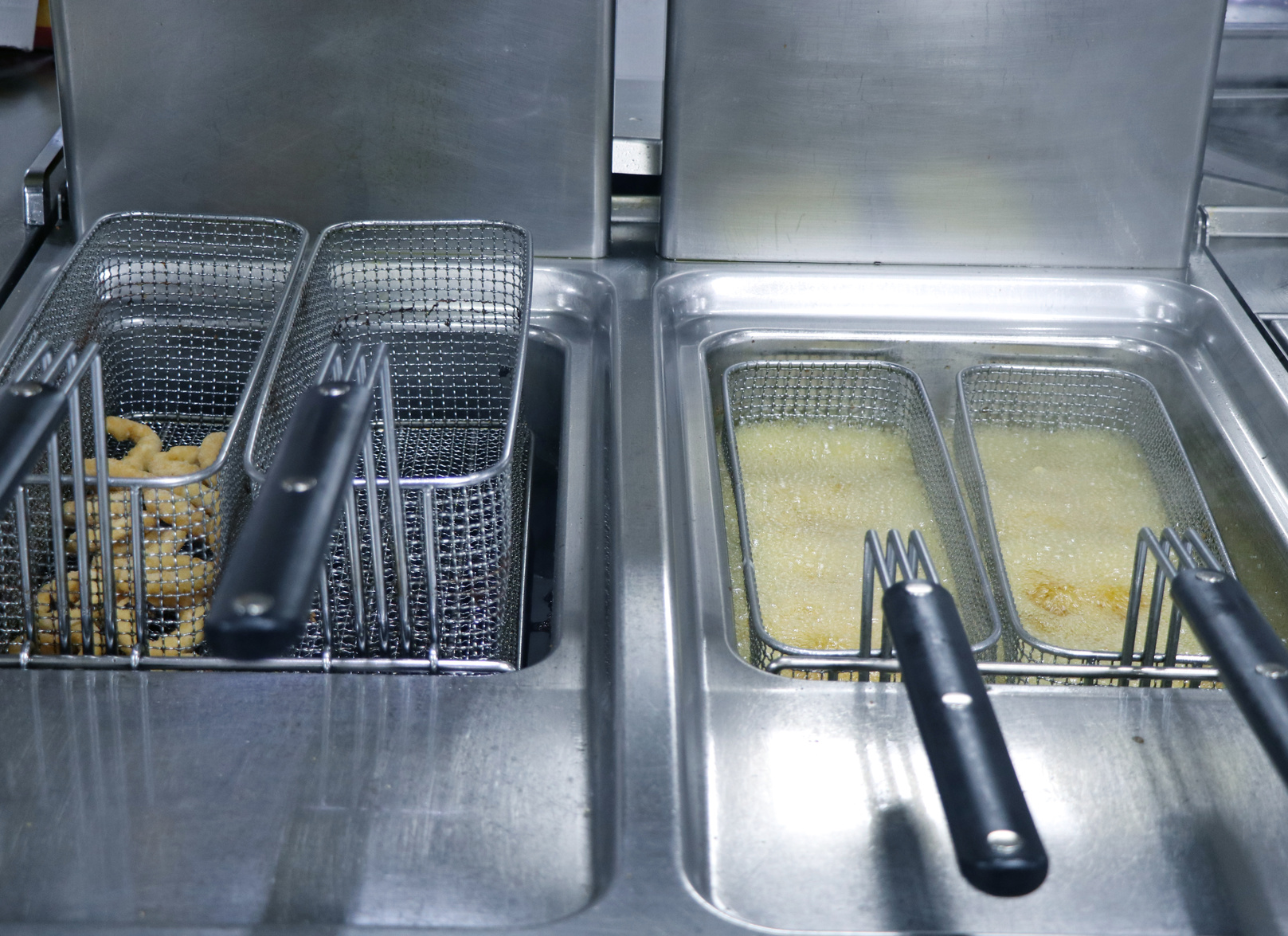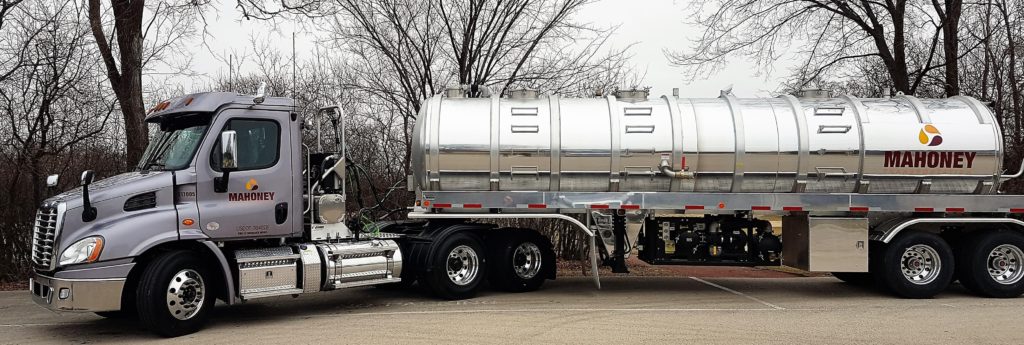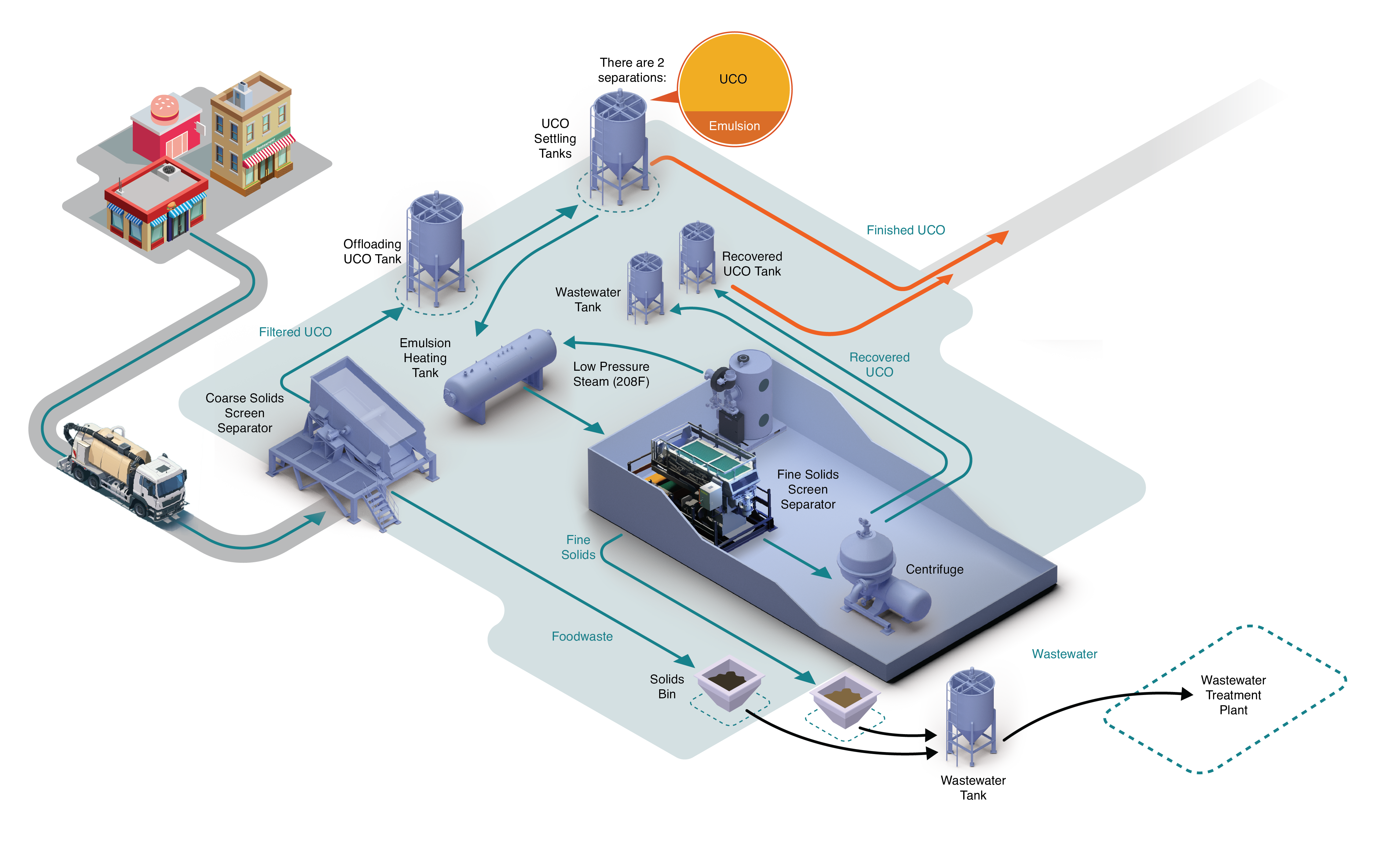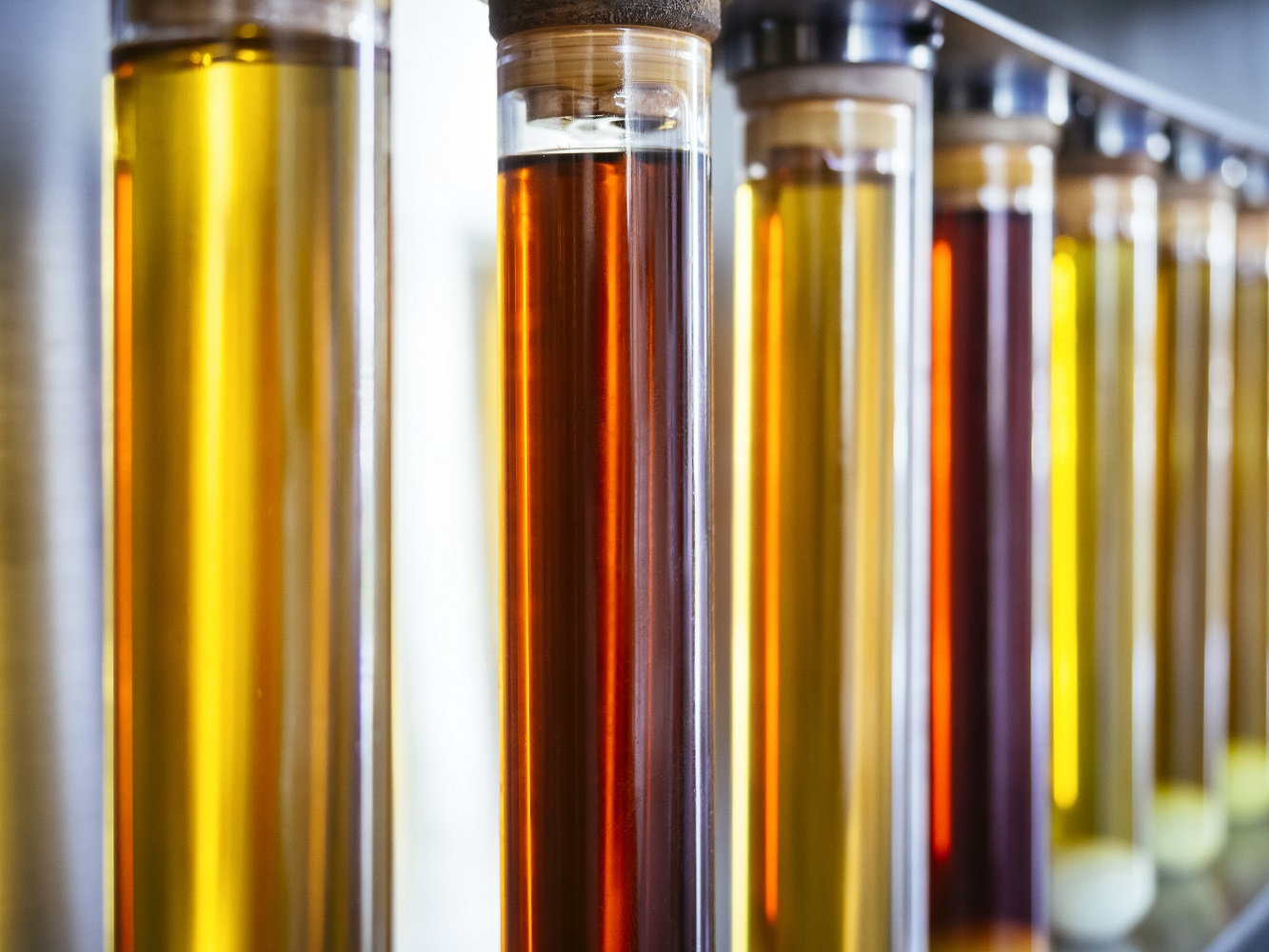According to the North American Rendering Association (NARA), more than 4.4 billion pounds of used cooking oil (UCO) is collected each year from restaurants in the U.S. and Canada to be rendered and recycled into sustainable biofuels such as biodiesel and sustainable aviation fuel (SAF). The UCO industry in the U.S. plays a vital role in the rendering of UCO and generated a revenue of $2.774 billion in 2024, according to statistics from Grand View Research. This industry is expected to grow in the next five years with a projected revenue of $4.067 billion by 2030.
Restaurants, cafés, grocery stores, and other commercial kitchens are left with UCO almost every day. Restaurant managers are required to store and recycle their UCO as washing it down the kitchen drain can damage the plumbing system and municipal sewer lines. Each commercial kitchen should have a system in place to safely store the UCO and work with a professional like Mahoney Environmental to regularly pick up the UCO and take it to a facility where it can be rendered and recycled.
Commercial kitchen owners and restaurant managers have a responsibility to recycle their UCO. There are many businesses in the U.S., including Mahoney Environmental, that offer convenient UCO pickup and recycling services to ensure that discarded fryer oil is transported to the proper facilities for rendering.
Why Should Commercial Kitchens Recycle Fryer Oil?
Cooking oil is used to give fried foods a crisp texture and incredible flavor. However, when the oil passes its useful life, it needs to be collected and recycled for the safety of the commercial kitchen and to protect the natural environment.
The following are the main reasons why commercial kitchens should always recycle their UCO:
- Environmental protection: UCO should never be washed down the drain because it can clog the pipes, damage the municipal sewer system, and pollute the wastewater which can cause serious environmental damage. Recycling UCO protects the natural environment by keeping it out of landfills and waterways.
- Compliance with regulations: There are local and federal regulations that require restaurants to properly dispose of their used fryer oil. Any violation of these regulations could result in fines for your business. Recycling your UCO keeps your business in compliance and avoids fines.
- Health and safety: Mishandling cooking oil can result in spills or overflows from full storage containers that increase the risk of injuries from burns, slips, and falls. Working with a professional like Mahoney Environmental will ensure that your restaurant has the equipment to safely handle and store UCO which reduces the risk of injuries. You can also establish regular UCO pickups to prevent your storage containers from overfilling.
- Sustainable use of resources: Recycling UCO ensures that it is rendered to produce sustainable products such as renewable diesel and sustainable aviation fuel (SAF) which help reduce greenhouse gas emissions.
- Operational efficiency: You can improve the efficiency of your kitchen operation by working with a professional that offers cooking oil management services. At Mahoney Environmental, we provide cooking oil management systems that include storage containers and Portable Filter Machines (PFMs) to ensure the safe and efficient handling of cooking oil.
How Do Foodservice Businesses Find UCO Recyclers?

Foodservice business owners and restaurant managers looking for a partner to pick up and recycle their UCO can research businesses that offer these environmental services. There are many companies that offer UCO pickup and recycling services that are based locally or feature cross-country networks that offer convenience to foodservice businesses nationwide.
UCO recyclers can serve a number of industries including restaurants, hotels, airports, casinos, and higher education institutions. Whether it’s a small business or a large national brand, a professional is available to cater to the business’ UCO recycling needs.
What Tasks Will the UCO Pickup Professional Perform?
Professionals that work with foodservice businesses to collect and recycle their UCO often provide storage containers that accommodate the needs of the business. These containers can range from 100-gallon to 300-gallon containers, and some come with a sensor that allows the oil recycler to monitor the level of UCO to ensure timely pickups.
The oil recycler then establishes a contract with the business that includes a schedule for UCO pickups. The pickups are generally scheduled at times that will minimize interruption to the daily operations of the business. The driver will arrive in a specialized truck and load the UCO from the storage containers into the truck with no need to interact with any of the restaurant staff.
What Should Foodservice Businesses Do to Facilitate Recycling?

Commercial kitchens and restaurants should have a cooking oil management system in place to ensure efficient handling of the cooking oil before, during, and after use. Once the oil has passed its useful life, it must be filtered and stored using the proper equipment and containers. Establishing a regular pickup schedule with a professional will ensure that the UCO is picked up and recycled before the storage containers get full.
Foodservice businesses in cold climates should make sure that their UCO is stored in a warm place to prevent it from solidifying. The UCO must be flowable for pickups to go smoothly.
How Often Should Foodservice Businesses Schedule UCO Collections?
How often UCO should be collected depends on the volume of usage for each business. UCO should be picked up at least once every two months, but businesses that use higher volumes of cooking oil may benefit from weekly UCO pickups.
UCO pickups should be frequent enough to prevent overfilling storage containers and should be done in compliance with applicable regulations.
UCO Pickup and Recycling Services from Mahoney Environmental
Foodservice businesses are legally obligated to responsibly dispose of UCO in compliance with local and state regulations. At Mahoney Environmental, we provide UCO pickup and recycling services to help a wide range of foodservice businesses take an environmentally conscious approach to recycling their UCO.
Mahoney Environmental has been in business for more than 70 years and can serve your business with professionalism and expertise. We will establish a UCO pickup schedule that works best for your business and provide timely and efficient pickups to transport your UCO to a facility where it can be recycled. We can also design, install, and update cooking oil management systems for commercial kitchens and provide grease trap cleaning and maintenance services.
Working with Mahoney Environmental for regular UCO pickups benefits your kitchen by contributing to a safer and more efficient workspace and helps protect the natural environment. Mahoney Environmental has a nationwide network, making UCO collection and recycling convenient in every state.
You can call Mahoney Environmental at (800) 892-9392 for more about our UCO pickup and recycling services in your area.



 Call Us Now (800) 892-9392
Call Us Now (800) 892-9392